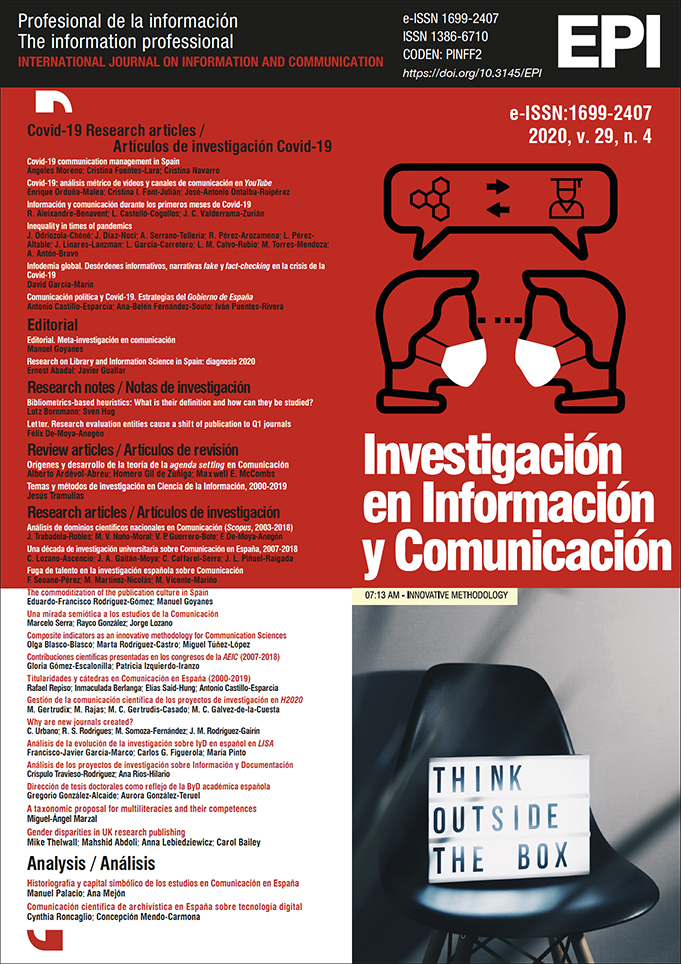Letter. Research evaluation entities cause a shift of publication to Q1 journals
DOI:
https://doi.org/10.3145/epi.2020.jul.31Keywords:
Scientific journals, Scholarly communication, Scientific production, International rankings, Acreditation agencies, Public regulation, Research evaluation entities, ScopusAbstract
In Scopus there are four times more documents in first-quartile publications than in fourth-quartile ones. Publishers intend to adjust the editorial supply to the demand from authors, which seems to focus primarily on Q1 publications. Since 44% of the papers are concentrated in Q1 journals, papers published in journals in this quartile will be more likely to exceed the global average of impact. To the extent that publications are in greater demand by authors, they tend to be absorbed in different ways by large publishing groups. It has not been the growth of the editorial offer that has caused this over-demand from authors, but rather the identification of part of the editorial offering by public regulators as reliable in the research evaluation processes, resulting in a concentration of demand for Q1 journals by researchers.Downloads
Downloads
Published
How to Cite
Issue
Section
License
Dissemination conditions of the articles once they are published
Authors can freely disseminate their articles on websites, social networks and repositories
However, the following conditions must be respected:
- Only the editorial version should be made public. Please do not publish preprints, postprints or proofs.
- Along with this copy, a specific mention of the publication in which the text has appeared must be included, also adding a clickable link to the URL: http://www.profesionaldelainformacion.com
- Only the final editorial version should be made public. Please do not publish preprints, postprints or proofs.
- Along with that copy, a specific mention of the publication in which the text has appeared must be included, also adding a clickable link to the URL: http://revista.profesionaldelainformacion.com
Profesional de la información journal offers the articles in open access with a Creative Commons BY license.




